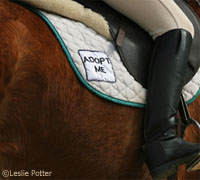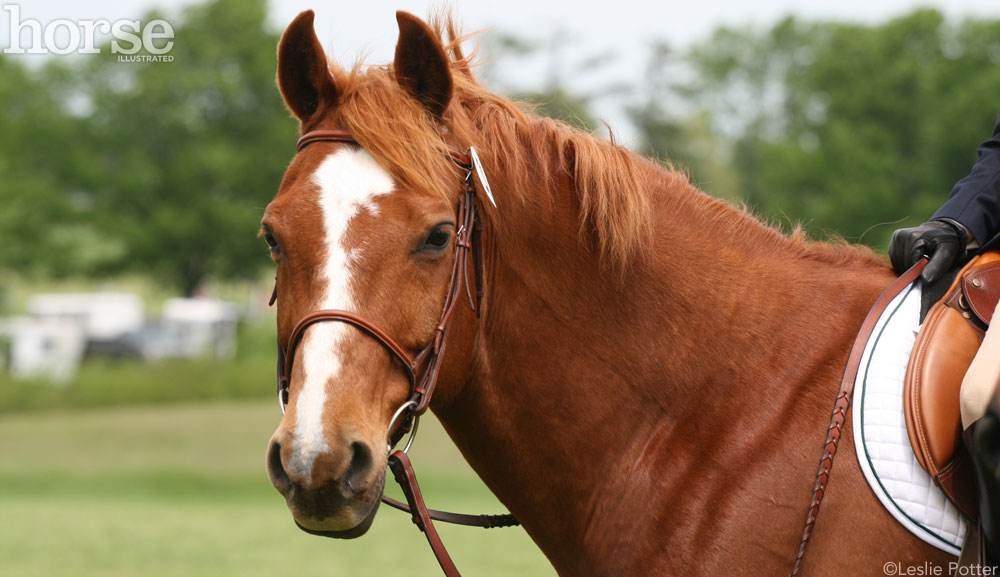 The American Society for the Prevention of Cruelty to Animals® (ASPCA) today announced the Million Dollar Rescuing Racers Initiative — a major initiative made possible by a generous donor — that will aid in the rescue of retired racehorses from neglect, abuse, and slaughter. Six equine rescues and sanctuaries across the country were selected to take up the challenge of saving more Thoroughbreds than ever before.
The American Society for the Prevention of Cruelty to Animals® (ASPCA) today announced the Million Dollar Rescuing Racers Initiative — a major initiative made possible by a generous donor — that will aid in the rescue of retired racehorses from neglect, abuse, and slaughter. Six equine rescues and sanctuaries across the country were selected to take up the challenge of saving more Thoroughbreds than ever before.
The six grant recipients are: California Equine Retirement Foundation in Winchester, Calif.; Old Friends in Georgetown, Ky.; MidAtlantic Horse Rescue in Chesapeake City, Md.; Kentucky Equine Humane Center in Lexington, Ky.; Thoroughbred Retirement Foundation headquartered in Saratoga Springs, N.Y., with contracted housing in 14 states; and Communication Alliance to Network Thoroughbred Ex-Racehorses (CANTER) in East Lansing, Mich., with chapters in eight states.
“Many thoroughbreds rarely live out their final days in peace and comfort when their racing careers are over,” said ASPCA President & CEO Ed Sayres. “Too often, they end up at auctions or worse, are sent to slaughterhouses where their lives come to a brutal end. These grants will enable organizations devoted to equine rescue the ability to save more horses and further advance their mission.”
The selected recipients cover a wide range of thoroughbred rescues, and the grant funding — ranging from $100,000 to $350,000 — will be distributed over the next two to three years to help each of the groups increase capacity and rescue more horses. Plans include expanding direct intake programs, incorporating physical therapy/rehabilitation programs, renovating facilities to accommodate more horses, creating voucher programs to increase adoptions, and implementing training programs for thoroughbreds to ready them for second careers.
“We met with visionaries who were extremely grateful to be selected for this opportunity to responsibly build their capacity and save more racehorses,” said Jacque Schultz, Senior Director of ASPCA Community Outreach. “The ASPCA truly values each group’s steadfast efforts to promote equine welfare. The thoroughbred that has given its all on the racetrack deserves to live out his life free of pain, fear, and suffering.”
In 2009, the ASPCA awarded a total of more than $540,000 in the form of 164 grants to equine rescue groups and humane organizations across the country. The ASPCA works to protect and aid horses through legislation, advocacy, education, targeted grants, and enforcement of the carriage horse and cruelty laws in New York City.
For more information on the ASPCA’s equine programs, please visit /redirect.php?location=http%3a%2f%2fwww.aspcapro.org%2fsaving-lives%2fequine-program.
More on retraining Thoroughbreds
OTTB Let-Down and Nutrition
Starting over with OTTBs: Teach Aids for Riding, Not Racing
Starting over with OTTBs: Reclaiming the Mind





I think because they can’t run as fast they have to be put down. I would adopt one if I could. I bet they could be a good friend to anyone. I like that they finally realize that just because they can’t run they still have a future.
I think it is good that they are saving ex-racehorses from the slaughter house. I think after racing for so long they should be able to retire in peace. I think we should not kill as many horses. I would adopt one if I could.
Most race horses are only in the races until they are about 4 years old. On occasion a bit older. To be sent to the slaughter so young is terrible. They have so much time and happiness to give to someone.
This is a great program, and I wish it all success. But there are other equine breeds and disciplines that need help as well. My only hope is that this is a successful program and other organizations follow the ASPCA’s lead.
Wow. I used to have an ottb and I’d love another one.
I LOVE this! I think this should be posted at all racetracks to show those who just like to see the horses race just what their fate holds after their racing career is over. I know when I was young and naive, before I took lessons and got involved in horses, I thought all race horses went on to live happily in pastures. I have since learned the truth. Maybe if everyday people knew what happened to race horses after the track more people would donate to help save more horses.
I’ve had two OTTB’s they are wonderful horses. My current, Charlie, is being trained in dressage and hopefully jumping after he builds up regular muscle mass!
They are just great horses I’m glad they are stepping in to do something for these horses.